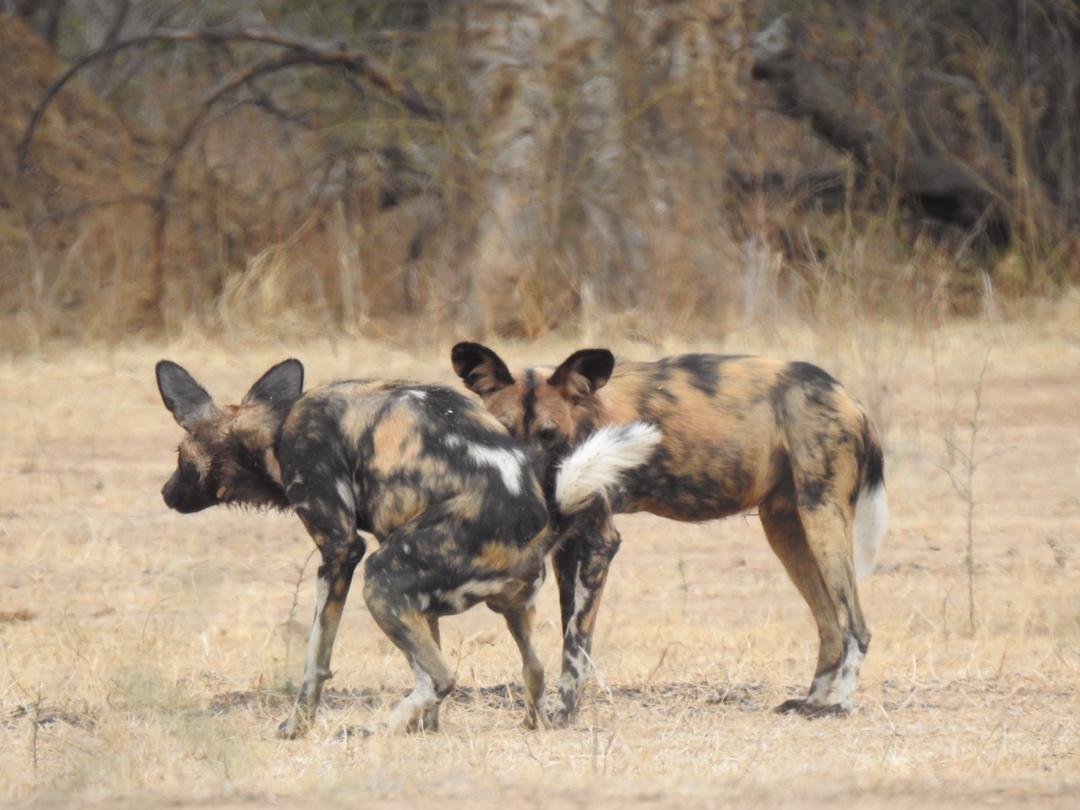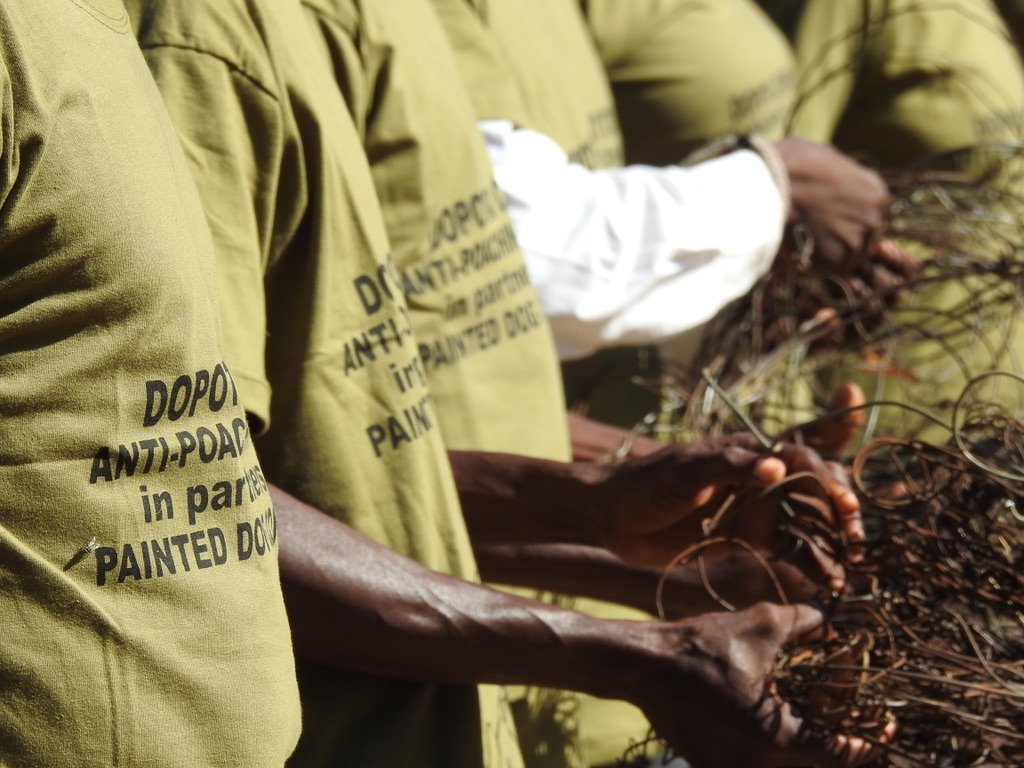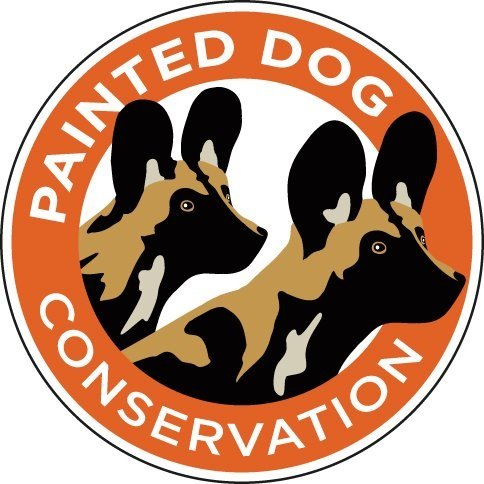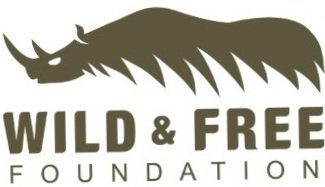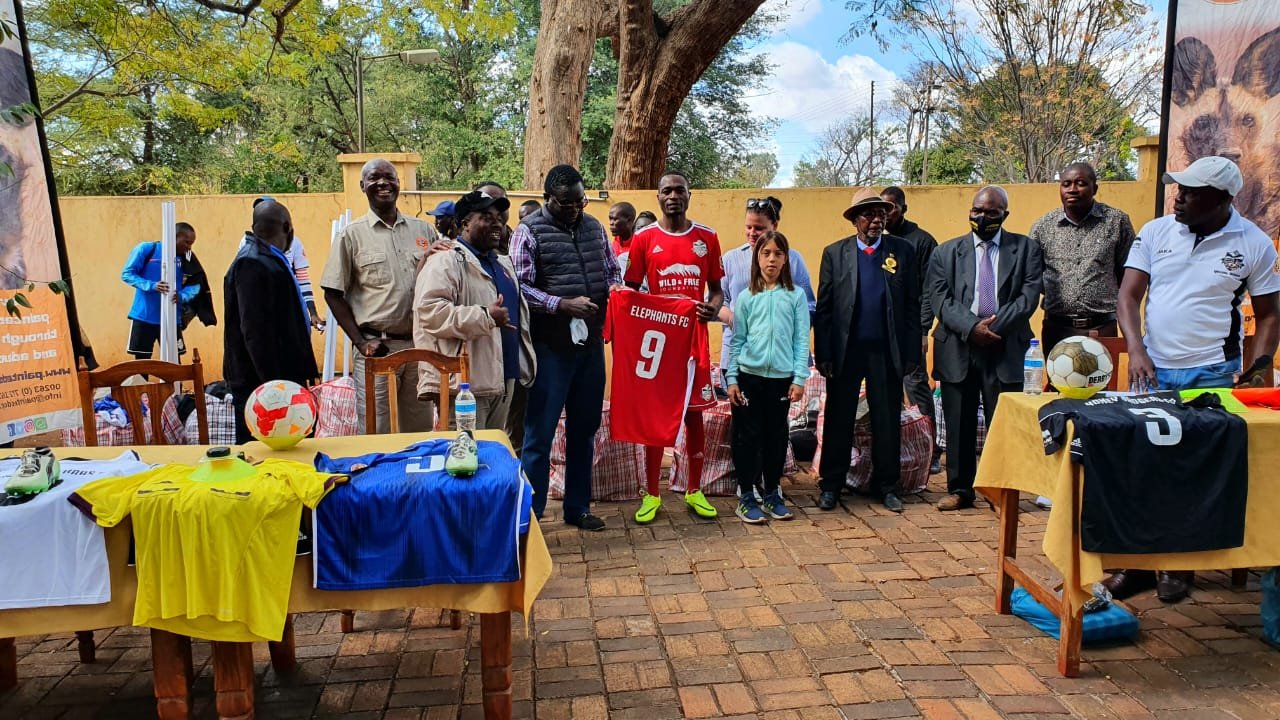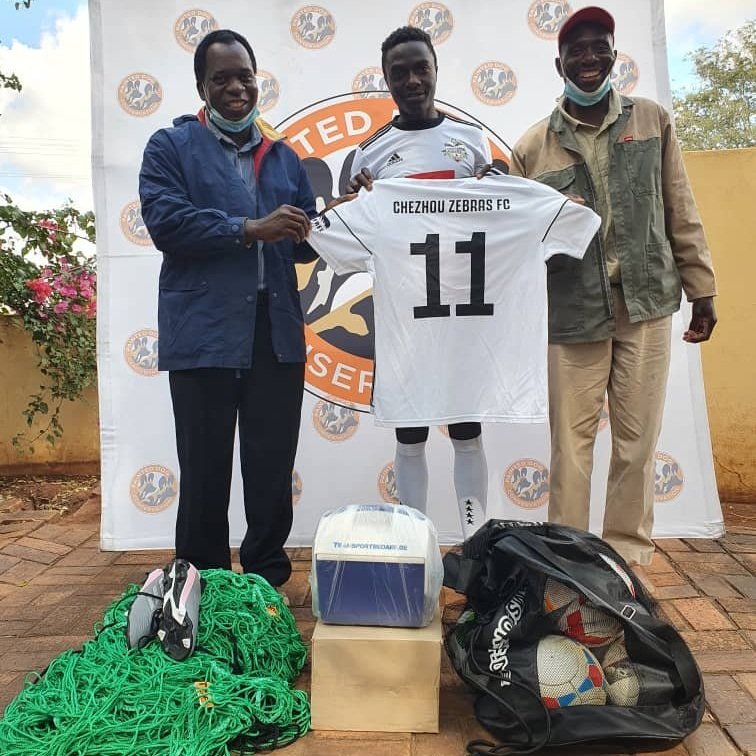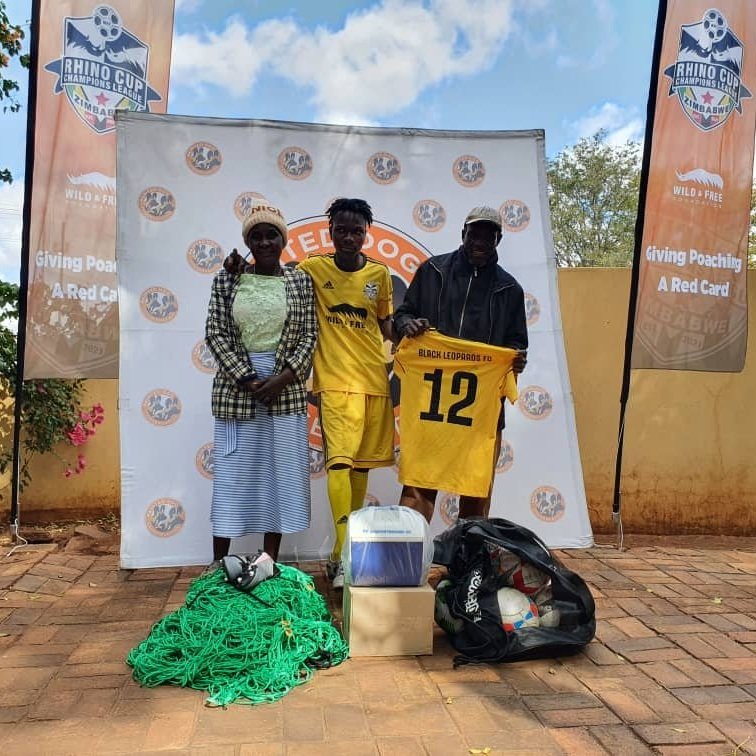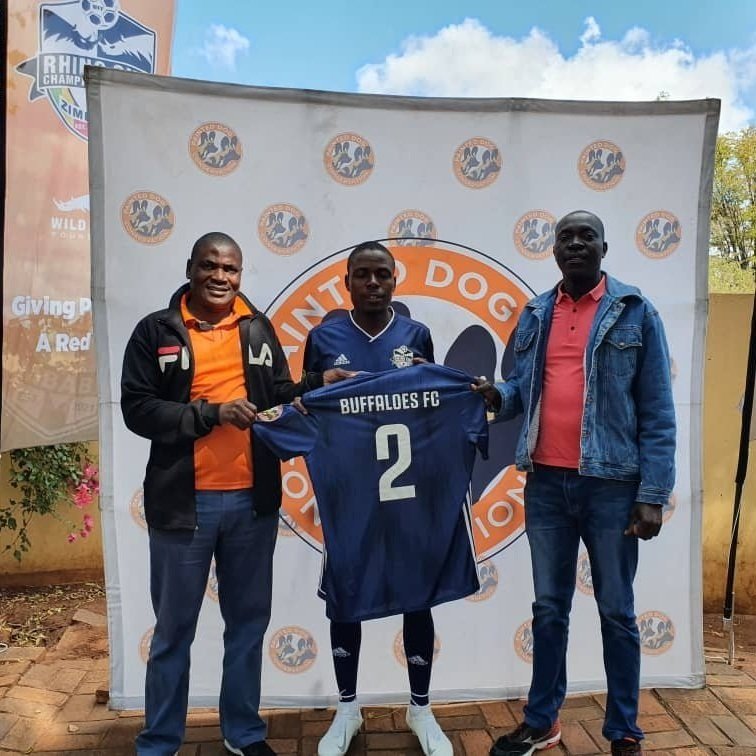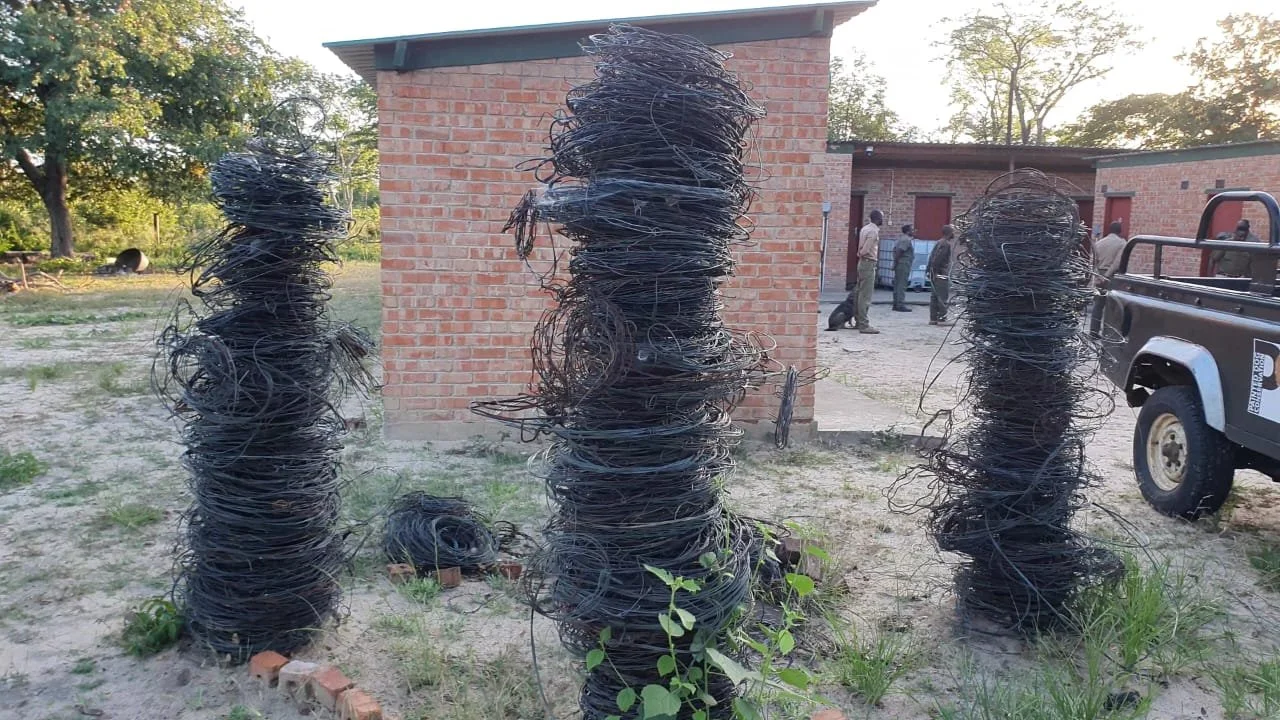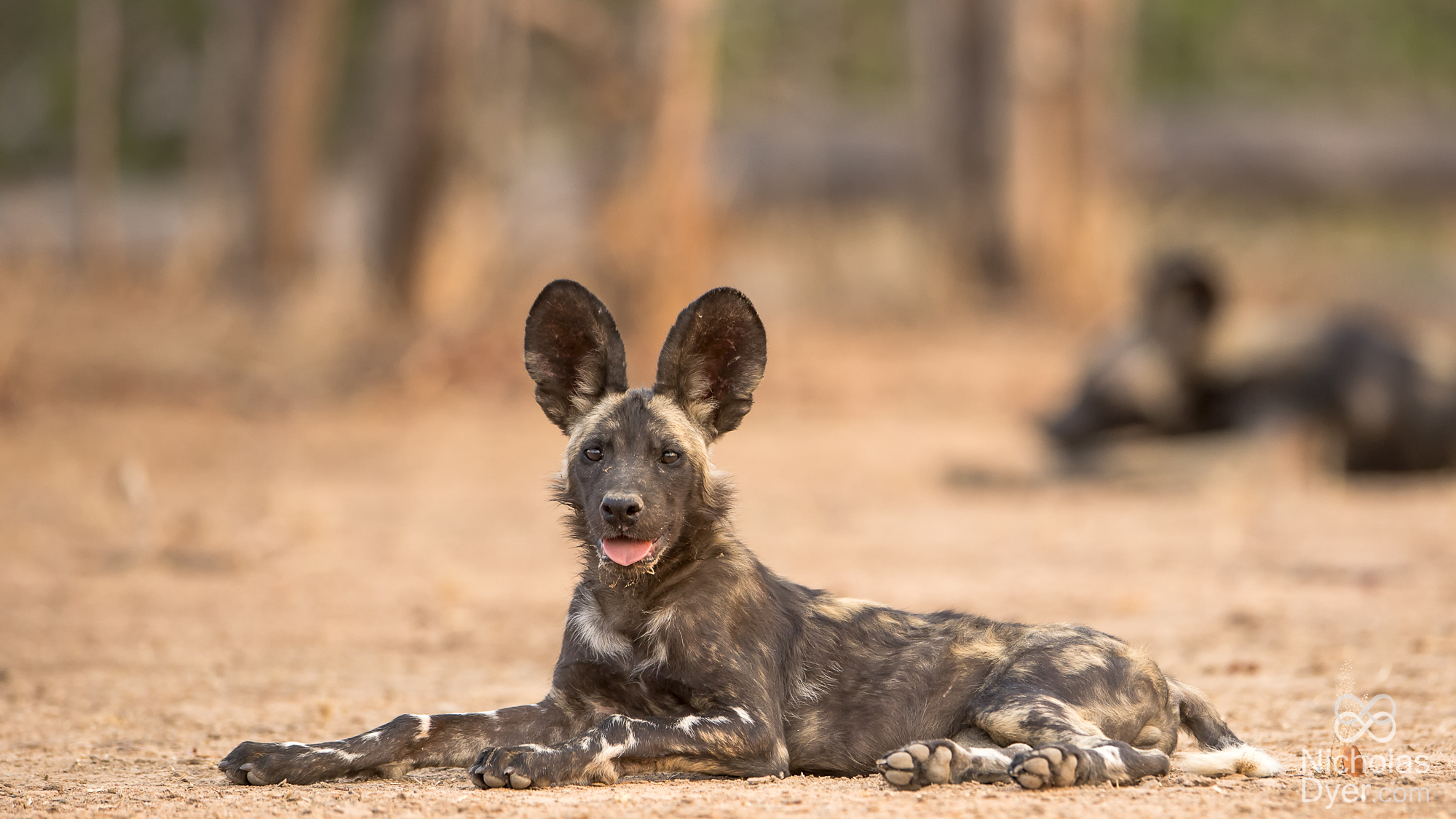
News Updates
Notes from the Field: Denning and Inbreeding
The tale of the Mpindothela has taken a better twist this time around. Clara, the pack's alpha female, now has pups, and the pack is denning. The Mpindothela pack is a merger of the four males from the Mathathela pack, which used to roam near our headquarters in Dete and the four remaining females of the notorious Mpindo pack.
Clara earlier in the year
The tale of the Mpindothela has taken a better twist this time around. Clara, the pack's alpha female, now has pups, and the pack is denning. The Mpindothela pack is a merger of the four males from the Mathathela pack, which used to roam near our headquarters in Dete and the four remaining females of the notorious Mpindo pack. The pack formed when we released the Mpindo females to join the waiting males outside our Rehabilitation facility last year.
Looking back, since the pack was formed, the Mpindothela lost its alpha male Khule to a lion attack and a promising female MaDube to a road accident. Their future looked bleak following these incidents. The pack regrouped well, and now with pups comes new hope for the pack and the painted dog population in Hwange.
Pregnant Clara feeding with her pack
In Mana Pools, Boas, the son of Taku and Tafara (born 2020) of the Rucomecci pack, has joined the Nyamepi pack with a male we believe to be his brother, Dickson. In the video below shot by our researchers in Mana Pools, Boas and alpha female Whisky are mating.
Boas and Whisky Mating
While, on the one hand, it's good to see "new" males join the Nyamepi pack after the disappearance of alpha male Gamma in early May and the other four males, it is still a concern because Taku and Whisky, are sisters. So Boas is a close relative, indeed nephew of Whisky.
This continues a worrying trend in Mana pools of an apparent lack of "new blood" migrating into the area.
Boas and Whisky
In Partnership with the Community
No matter how much progress we make with the dogs, it’s no use if we work in isolation from the surrounding communities. In 2020 and in 2021 we had a mutually beneficial and successful operation in collaboration with the Mabale Community Anti-poaching Volunteers. This year, we got funding to engage the Mabale Community Anti-Poaching Unit volunteers for another six months. Keeping our foot on the pedal by having and maintaining a heavy presence on the ground.
Mabale Community Anti-Poaching Unit Volunteers
No matter how much progress we make with the dogs, it’s no use if we work in isolation from the surrounding communities. In 2020 and in 2021 we had a mutually beneficial and successful operation in collaboration with the Mabale Community Anti-Poaching Unit (MCAPU) This year, we have again got funding to engage the MCAPU for another six months. Keeping our foot on the pedal, so to speak, by having and maintaining a solid presence on the ground.
In 2020, we saw an escalation of poaching activities in the areas bordering Hwange National Park due to hardships caused by the COVID-19 pandemic. We formally engaged the 45-strong MCAPU, mainly women, whose children benefit most from our Children’s Bush Camp. We deployed the MCAPU in areas outside their community to assist our 16-strong professional Anti Poaching Unit. We gave them a daily stipend for these patrols to support their families. This collaboration resulted in a record +5000 snares being recovered in three months, more than double the average number of snares collected annually.
In 2021, thanks to your generous support, we again engaged the MCAPU for six months. We managed to maintain a presence and pressure in the field, which reduced poaching activity. As a result, only 2000 snares were collected. The MCAPU's life-saving work provided a blanket of protection for all wildlife in the area. The stipend they received significantly boosted the local economy at a time when opportunities were scarce from the impacts of lockdowns due to the COVID-19 pandemic.
It is worth noting that many communities in our core operating area are replicating the efforts of the Mabale Community and making their villages safe for livestock and wildlife. These communities living on the edge of Hwange National Park are prone to human-wildlife conflict incidents. Sianyanga community is the latest to show interest and set up a voluntary community anti-poaching unit.
PDC Anti-Poaching Unit Manager Enock Zulu Addresses Community Volunteers
We haven’t been spared from the escalating costs of operations due to fuel price increases. A huge financial backing is needed to do the work we do. We were very pleased and grateful to receive 296 food ration for our Anti-Poaching scouts from the French Embassy in Zimbabwe. The work at hand is still daunting, we continue to call for increased support for us to continue with this critical and life-saving work not only for us but for the generation to come.
Painted Dog Conservation partners Wild and Free Foundation
Painted Cog Conservation (PDC) and Wild and Free Foundation (WFF) have partnered to support conservation through sport, sponsoring the Iganyana Football League. Wild and Free Foundation (WFF) is a non-profit organization based in the United States and South Africa with a mission to empower youth and communities living around the national parks and wildlife reserves in Africa through sport and economic opportunities to reduce their dependence on poaching.
Painted Dog Conservation (PDC) and Wild and Free Foundation (WFF) have partnered to support conservation through sport, sponsoring the Iganyana Football League. Wild and Free Foundation (WFF) is a non-profit organization based in the United States and South Africa with a mission to empower youth and communities living around the national parks and wildlife reserves in Africa through sport and economic opportunities to reduce their dependence on poaching.
For over 15 years now, PDC has been sponsoring the local football league - Iganyana Football League – to reach out to the youth about conservation, keeping them engaged and away from illegal activities in the wilderness, e.g. poaching. Over the years, the league yielded significant results in reporting poaching activities, reporting painted dog sightings and supporting community-based initiatives such as clean-up campaigns and borehole repairs.
The PDC WFF partnership couldn't have come at any better time than now. To reflect this partnership, the league will now assume a new name, 'Rhino Cup Champions League Zimbabwe – Iganyana Division' to reflect this partnership.
Rhino Cup Champions League (RCCL) is the brainchild of WFF. WFF successfully implemented the Rhino Cup Champions League in Mozambique in 2017 with positive results such as reduced rhino poaching. Boredom, idleness, and poverty are some of the contributing factors to becoming a poacher. RCCL Zimbabwe addresses these factors by supporting and sponsoring the sports communities love - football - helping save wildlife and people.
Soccer Kit and Equipment Handover Ceremony
Under this new partnership, we distributed WFF Germany-sourced soccer kits and equipment on the 2nd of July 2022 to all 20 community-based teams in the league. The local chief, Chief Dingani-Nelukoba, who is also the Vice-Chairman of the PDC Board of Trustees, Col K Mhlophe from the national football governing board Zimbabwe Football Association (ZIFA), Zimbabwe women's national team coach Sithetheliwe' Kwinji 15' Sibanda, WFF's Kathrin Ehrke, community leaders and team representatives among others graced the event.
Each team received at least two soccer kits, including boots, socks, balls, cooler boxes, nets, cones, and bibs.
PDC and WFF's common goal is to empower and uplift young people and to help them get on a positive life path instead of the destructive path of poaching or any other types of illegal activities while engaging with people, uplifting communities and protecting wildlife. We are creating an environment where endangered species like painted dogs and other wildlife can thrive.
The RCCL Zimbabwe - Iganyana Division supports 20 male and four female community-based teams from communities adjacent to Hwange National Park, directly impacting wildlife and people welfare in the area.
To support conservation through sport, kindly send us a direct email or donate to the button below.
Giving poaching the red card!
Conservation through Action and Education!
Resolute in Protecting Painted Dogs and Wildlife
Anti-poaching is a complementary and essential effort in the holistic approach we have employed to try and save painted dogs from extinction. Our team of highly trained scouts have been in the field since 2001, removing the indiscriminate and deadly snares and arresting poachers.
Snare wire piles at Painted Dog Conservation anti-poaching base
Anti-poaching is a complementary and essential effort in the holistic approach we have employed to try and save painted dogs from extinction. Our team of highly trained scouts have been in the field since 2001, removing the indiscriminate and deadly snares and arresting poachers.
During the first quarter of 2022, our scouts conducted 262 patrols covering an area of 1422km2. They recovered 319 snares and made 2 arrests.
The community anti-poaching teams that were formed to complement PDC’s effort continue to grow as more and more people in the nearby villages display positive attitudes towards wildlife. All three Community teams comprising Mabale, Dopota and Nabushome carried out their voluntary patrols without any adverse reports. The Sianyanga community has now also indicated their intention by formalising their team and work. Sianyanga has four forest land areas around their village which need monitoring due to the frequent presence of wildlife therein and the threats by poachers to both wildlife and livestock.
This brings the total of Community APU members to 187.
A pack of painted dogs
Enock Zulu demonstrates how to use the Trimble gadget and SMART software
We trained the Mabale, Nabushome and Dopota teams to use the Trimble device and the SMART data collection software to better record their patrols and findings. The teams were issued with one device each for use during their patrols and we will undertake the same training with the Sianyanga team.
Dopota Community Anti-poaching Volunteers SMART training
Kids Back at the Iganyana Children’s Bush Camp
Our Children’s Bush Camp opened again in Mid-February. We had to ensure that all necessary recommended health protocols were put in place, to make sure the children and our staff were as safe as possible.
Songwa Primary School kids at Painted Dog Conservation
The Iganyana Children’s Bush Camp closed its first quarter and first school term on a high note after starting up late in Mid-February. We had to ensure that all necessary recommended health protocols were put in place, to make sure the children and our staff were as safe as possible.
The delay in opening schools didn’t dent the hard-working spirit of the staff at camp. St Francis A and B classes that missed camps in 2021 were the first this year although they were already in grade 7. This excited the students quite a lot as they thought they had been left out, “it’s nice to be here” they kept saying throughout their stay with us at the Bush Camp.
Kids learning at Iganyana Children’s Bush Camp
Songwa and Chezhou were the first grade 6 class of the year. Affected by lockdowns and delayed school openings we noticed the kids had an even greater challenge in reading and writing which slowed down the pace of teaching and learning at the camp. These are kids from rural areas, with no access to the internet or ways of smart learning. When everyone else was doing online lessons they were not, they were home ploughing fields and helping look after livestock. We hope, with the necessary support, we will be able to do more in-school programs and build teacher capacity programs to help bridge the gap.
Chezhou Primary School kids
Completing the generation circle?
Nelson Mandela said, “education is the most important tool we can use to change the world.” But it takes time, it’s an unending process. As if to underline this, we are now seeing students coming to the camp who are children of parents who came to camp while they were grade 6, some 16-17 years ago in what we have termed ‘completing the generation circle. We have had children shout and say, “My mother stayed in room 3 and this is the room,” this is usually met with smiles all over the face. This is an indicator that our goal of having a conservation-conscious generation in the locality is becoming a reality.
The faces of excited children are always a delight to observe and this keeps us going and wanting to do more.
Kids at Iganyana Children’s Bush Camp on a game drive




